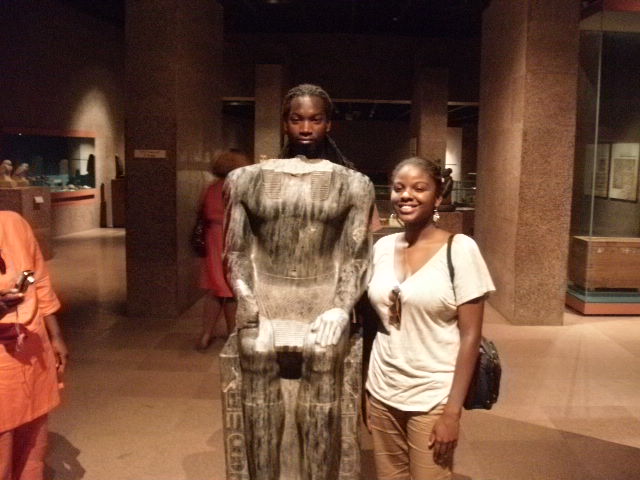Not Going to the Old Kingdom in 2009
 My plans have changed. I will not be able to produce the funds to leave this country in 2009. This allows me to do more research and learn from the documented experiences of others. By way of the intrepid eyes of Liberator Magazine comes “The College of Arts and Sciences Summer Study Abroad—Egypt Blog.” Since I have been handling job interviews with employers and headhunters (which involves professional preparation), I have not had the time to read this Blog—but I will.
My plans have changed. I will not be able to produce the funds to leave this country in 2009. This allows me to do more research and learn from the documented experiences of others. By way of the intrepid eyes of Liberator Magazine comes “The College of Arts and Sciences Summer Study Abroad—Egypt Blog.” Since I have been handling job interviews with employers and headhunters (which involves professional preparation), I have not had the time to read this Blog—but I will.
This entry is very promising: “[It’s] 11 pm and I am sitting in the Tubman Quadrangle, trying to complete my work for housing hours. I am so very exhausted. I spent most of last night moving out of my summer housing and trying to pack for my trip to Egypt. The whole trip still seems so surreal. I can’t believe that I am headed to Egypt!; not in a million years did I ever imagine the I would be taking a trip to such an amazing place!” It feels great to know that someone in the wired world is experiencing our ancestral continent with the appropriate enthusiasm and wonder.
Egyptian Newspapers Online (in English)
The assumption here is that reading online Egyptian newspapers will help me get the local propaganda in Egypt—from the modern, post-apocalyptic Egyptians themselves. These are my English-language picks (from one list):
-
The Daily News Egypt (RSS feed)
-
Egypt Today### Other Online Curiosities
-
Black Travel Books: “As an accompaniment to any traveler’s experience, a good book which explains and informs potential travelers of the pros and cons of visiting an intended destination would be right on the money. As Black Americans face different situations when they travel, books written by Black authors chronicling their experiences can offer food for thought for many a Black traveler who desires to visit that faraway place they have always dreamed about.”
-
“Sothis (Greek Σώθις) is the name of a star that the Egyptians considered unusually significant. The star is not explicitly identified, but there are enough clues for modern scholars to be almost unanimous in identifying Sothis as Sirius.”
-
“Did you ever wonder who mapped the constellations? From the evidence about to be presented you would probably give the credit to the Ancient Egyptians … and you would be right!”
-
Blissym: “Charles K. Bliss was a Jewish refugee who spent much of World War II in Shanghai. While in China, he attempted to learn to read Chinese. Frustrated by the complexity of language, he designed a 20th Century ideographic language that could be read and written by people of all languages. Bliss was a chemist by training, so he based his design on a small set of ideographs (idea symbols) that could be combined to express complicated ideas, much as atoms could be combined to create complex molecules. This language would use images and icons instead of words. The language is called Blissym (Blissymbolics).”
